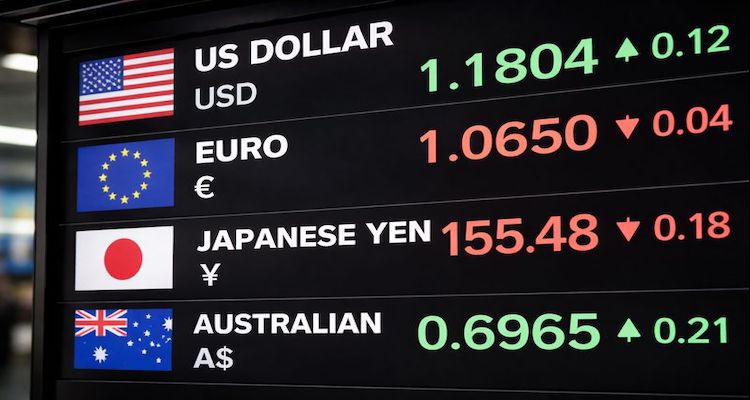The Most Profitable Businesses You’ve Never Heard Of

Behind the scenes of the global economy, niche industries generate billions in profit—without most people even knowing they exist.
Introduction – The Billion-Dollar Blind Spot
When we think of the most profitable businesses in the world, images of tech giants, oil conglomerates, and global retailers spring to mind. Yet, beyond the headlines, there are industries that quietly outpace some household names in profitability—operating with little public awareness, minimal advertising, and astonishingly high margins. These hidden power players thrive in the shadows, driving global supply chains, enabling everyday conveniences, and tapping into niche markets with laser-like precision.
Context & Background – Why Some Industries Stay Hidden
Part of the reason these industries fly under the radar is their business-to-business (B2B) nature. Unlike consumer brands that rely on mass marketing, these companies often deal directly with other corporations or governments. Many operate in niche sectors that seem obscure until you realize they are essential to modern life—think of the companies making the pigment for every road stripe you’ve ever seen, or those supplying the enzymes for cheese production worldwide.
A second factor is strategic secrecy. Some of these businesses avoid publicity to maintain competitive advantages or to shield themselves from scrutiny. In other cases, the public simply doesn’t notice them because they operate behind more visible brands.
Main Developments – The Hidden Goldmines
1. Data Centers for Niche Industries
While the “cloud” has become a familiar term, the specific companies that run data storage for sensitive sectors—like medical research or defense contracting—earn staggering profits. These providers charge premium rates for ultra-secure infrastructure, and their long-term contracts mean stable, recurring income.
2. Rare Earth Mineral Processing
Every smartphone, electric car, and wind turbine depends on rare earth elements like neodymium and dysprosium. Yet, the companies that refine these minerals—mostly operating in Asia—are largely unknown to consumers. With supply tightly controlled, profit margins can be exceptionally high, and geopolitical tensions only push prices further upward.
3. Specialty Chemicals for Everyday Products
From the exact formulation that keeps potato chips crisp in humid climates to the additives that make your toothpaste foam, specialty chemical manufacturers quietly dominate niche segments. They often hold patents on their formulations, enabling them to charge well above standard chemical prices.
4. Medical Testing Components
While hospitals and labs are the public face of diagnostics, the companies producing the reagents, swabs, and microfluidic chips behind the scenes are earning fortunes. Demand surged during the pandemic and continues to grow with advancements in genetic testing.
5. Luxury Packaging Suppliers
The unboxing experience has become a marketing tool for high-end brands, but few consumers know that specialized packaging firms design and manufacture the magnetic-closure boxes, custom foams, and embossed labels. Their clients include luxury watchmakers, premium spirits producers, and designer cosmetics brands—and their per-unit profits can dwarf the cost of the product inside.
Expert Insight – The Hidden Engine of Global Trade
“Many of the most profitable businesses remain invisible because they aren’t selling to you—they’re selling to the companies you buy from,” explains Dr. Henry Lowell, an industrial economics professor at the University of Chicago. “They often operate in monopoly-like conditions within their niche, so they control pricing power in a way consumer-facing companies cannot.”
According to a 2024 market analysis by Global Industry Insights, niche B2B suppliers in sectors like specialty chemicals and rare earth processing average profit margins between 28% and 45%, compared to an average of 10–12% for large consumer brands.
Impact & Implications – Why This Matters to Consumers and Investors
For consumers, these hidden giants shape everything from the price of electronics to the taste of packaged food—without ever appearing on a receipt. For investors, they represent untapped opportunities in sectors insulated from the volatility of consumer trends.
However, secrecy can also mean less oversight. Some rare earth refiners face criticism over environmental damage, and specialty chemical producers have been scrutinized for the ecological impact of their manufacturing processes. The challenge for regulators and activists is that the public often has little awareness of these industries, reducing pressure for change.
Conclusion – The Quiet Titans of Commerce
In the high-speed, high-visibility world of global business, it’s easy to focus on the logos we recognize and the companies we interact with daily. Yet, some of the biggest profit engines remain silent, working behind the curtain to power entire industries. They remind us that the real money often lies where most people aren’t looking—and that sometimes, the most influential businesses are the ones you’ve never heard of.
Disclaimer: This article is based on independent research and industry analysis. It does not constitute financial advice.










